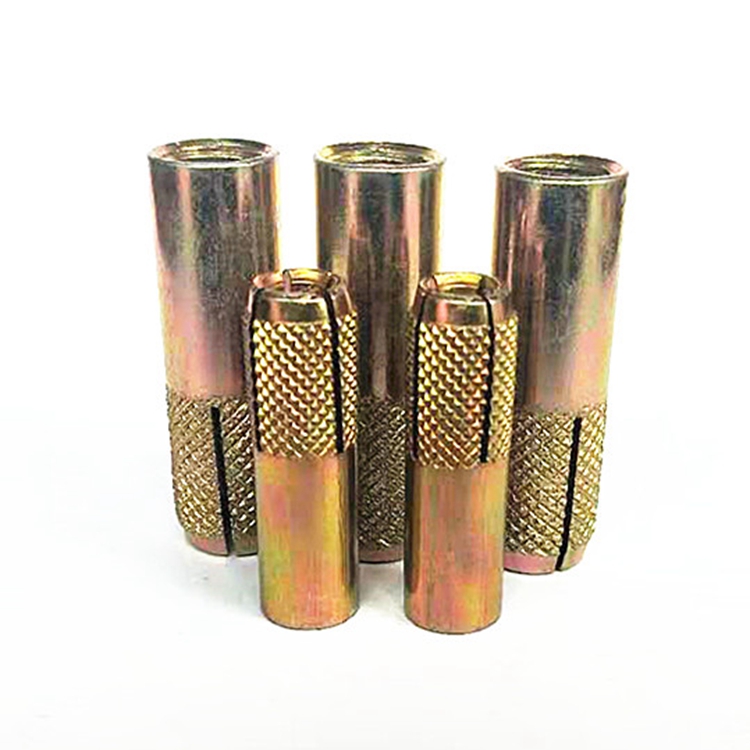Exploring Popular Hex Bolts and Their Applications in Various Industries
Nov . 10, 2024 01:27 Back to list
Exploring Popular Hex Bolts and Their Applications in Various Industries
Understanding Famous Hex Bolts A Key Component in Engineering
Hex bolts, often referred to simply as hexagonal bolts, are one of the most commonly used fasteners in a variety of industries. Beyond their basic shape and function, these bolts carry significant importance in structural integrity and engineering design. This article will delve into the characteristics, applications, and variations of famous hex bolts, shedding light on why they are indispensable in modern constructions.
The Anatomy of a Hex Bolt
A hex bolt is characterized by its hexagonal head, which allows it to be easily handled with a wrench. Typically, it consists of a cylindrical shaft with threads along its length, enabling it to secure materials together when paired with a nut. The geometry of the bolt ensures a robust grip, distributing the load evenly across a wider surface, which reduces the risk of stripping the threads or wrench slipping.
Materials and Coatings
Hex bolts can be fabricated from various materials, depending on their intended application. Common materials include carbon steel, stainless steel, and alloy steel. Each material offers distinct properties such as corrosion resistance, tensile strength, and durability. For instance, stainless steel hex bolts are favored in marine environments due to their ability to withstand rust and deterioration from salty air.
Additionally, these bolts may be finished with coatings like zinc plating or black oxide to enhance their resistance to environmental factors. This ensures that hex bolts maintain their integrity even in challenging settings, making them suitable for outdoor construction, automotive applications, and machinery.
Applications Across Industries
The versatility of hex bolts makes them prevalent across numerous industries. In construction, they are used to secure structural frames, fasten beams, and connect various components of buildings. Their ability to hold significant loads makes them ideal for supporting heavy frameworks.
In the automotive industry, hex bolts are vital for holding together engine components, chassis structures, and parts like the transmission system. Their reliability is crucial, as failure in these applications could lead to severe mechanical issues or safety hazards.
famous hex bolts

Moreover, hex bolts are essential in manufacturing sectors, especially in assembly lines where machinery is built or maintained. They are also used extensively in furniture design and household applications where robust and reliable fastening solutions are required.
Variations of Hex Bolts
While standard hex bolts have a well-defined shape, there are various types and grades available. For example, heavy hex bolts have a wider body and are designed for high-strength applications, often used in structural engineering. On the other hand, flange bolts incorporate a wider circular flange that acts as an integrated washer, distributing the load more effectively and eliminating the need for separate washers.
The grading system applied to screws and bolts, including hex bolts, defines their strength. Common grades like Grade 2, Grade 5, and Grade 8 denote increasing strength levels. Importantly, it is vital to choose the correct grade of hex bolt for an application to ensure safety and longevity.
The Future of Hex Bolts
As industries advance and technology evolves, the demand for stronger, lighter, and more versatile fastening solutions increases. Innovations in material science are likely to lead to the development of hex bolts with enhanced properties. For example, the applications of titanium alloys and advanced composites may pave the way for lighter yet equally robust hex bolts, which can cater to high-performance demands in aerospace and automotive fields.
Moreover, the rising emphasis on sustainability has prompted manufacturers to explore environmentally friendly materials and production techniques. This shift could redefine how hex bolts are crafted, focusing on minimizing their ecological footprint while maintaining performance standards.
Conclusion
Hex bolts are undeniably a foundational element in construction and manufacturing. Their simple yet effective design, combined with a variety of materials and applications, underscores their importance in ensuring structural integrity and safety. As industries continue to evolve, the hex bolt will likely adapt alongside, remaining a crucial player in engineering and design for years to come. Whether in towering skyscrapers or intricate machinery, the legacy of hex bolts will endure, paving the way for innovative breakthroughs in fastening technology.
Latest news
-
High-Quality Panel Stud Bolt Reliable Panel Stud Bolt Factory & Suppliers
NewsJul.08,2025
-
High-Precision Fine Thread Locknuts Manufacturer & Supplier Custom Solutions
NewsJul.08,2025
-
PH Imperial Stud Bolt – High Strength Fasteners from Leading Supplier & Factory
NewsJul.07,2025
-
High-Quality Allen Wrench Bolts Leading Factory, Company & Suppliers
NewsJul.07,2025
-
Wholesale Ball Stud Bolt - High Quality Supplier & Factory Price Reliable Wholesale Ball Stud Bolt Company
NewsJul.06,2025
-
High-Strength Alloy Bolts Manufacturer & Supplier Quality Alloy Fasteners Factory
NewsJul.06,2025
